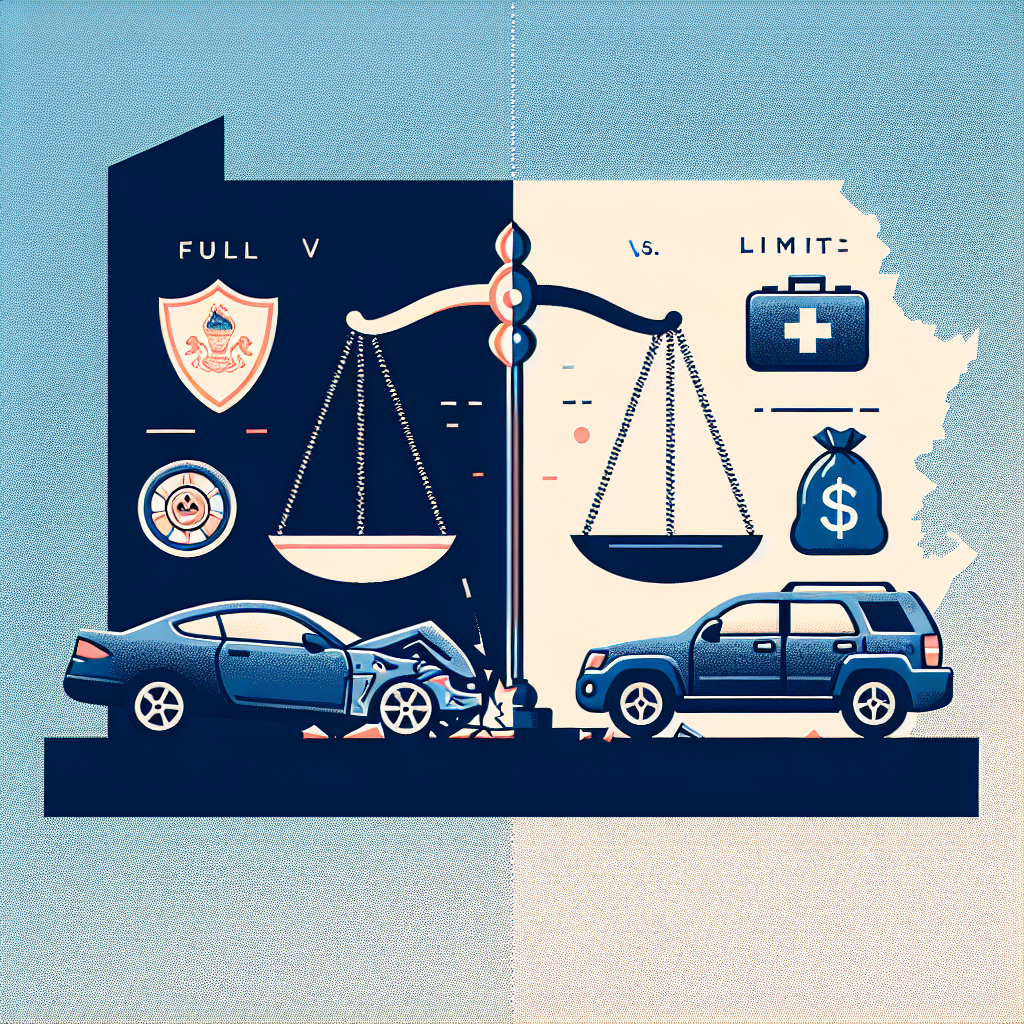Understanding PA Car Accident Tort Options
When you’re involved in a car crash in Pennsylvania, you have to choose between full tort and limited tort coverage. This choice affects what you can recover after a crash. In this post, we break down PA car accident full vs. limited tort explained simply, so you know exactly what to expect.
What Is “Tort” in a PA Car Accident?
In insurance terms, a tort relates to your right to sue. After a Pennsylvania car accident, your tort option determines whether you can seek full compensation for injuries and other damages. The two main choices are:
- Full Tort: No cap on pain and suffering awards.
- Limited Tort: Restricts non-economic damage claims, like pain and suffering.
Understanding these options helps you avoid surprises at claim time.
Full Tort Coverage
With full tort, you keep your right to sue for all damages if someone else is at fault. This is the most flexible option if you worry about serious injuries.
Key Features of Full Tort
- No limit on pain and suffering awards.
- Ability to sue for lost wages and other non-economic impacts.
- Higher premium, but greater legal options.
Choosing full tort is like having an open toolbox: you pay more, but you get full legal protection. If you end up with severe injuries or long-term medical bills, full tort often pays off.
Limited Tort Coverage
Limited tort lowers your premiums, but it also caps your right to sue for pain and suffering. You can sue only if your injuries are deemed “serious” under Pennsylvania law.
Key Features of Limited Tort
- Lower insurance rates.
- Can sue only for serious injuries (e.g., permanent scarring).
- Restricted access to non-economic damage claims.
Limited tort suits drivers on a budget who expect minor fender-benders. Just know you give up some legal rights if you go this route.
Comparing Full vs. Limited Tort
To see how full tort stacks up against limited tort, consider these factors:
- Cost: Full tort premiums are higher than limited tort.
- Recovery: Full tort lets you recover pain and suffering without caps.
- Flexibility: Full tort offers more legal options if injuries worsen.
- Threshold: Limited tort claims need “serious injury” proof.
It’s like choosing between a basic and a premium subscription. You pay extra for full coverage, but you get peace of mind.
How to Decide Which Tort Is Right for You
Ask yourself:
- How often do you drive? More miles can mean higher risk.
- What’s your budget for insurance premiums?
- Would you struggle if you couldn’t claim pain and suffering?
If you’re someone who values flexibility and comprehensive protection, full tort is a strong choice. If you’re a careful driver looking to save on premiums, limited tort may work.
Just as learning programming has its own roadmap, selecting tort coverage has steps of its own. For a clear guide on organizing your code, check out this CSS roadmap for beginners. Similarly, mapping out your coverage needs can simplify a complex decision.
Steps to File a Claim After a PA Car Accident
Once you’ve chosen your tort option and you’ve been in a collision, follow these steps:
- Call 911 and report the crash.
- Document the scene: photos, witness contacts, and notes.
- Notify your insurance company as soon as possible.
- Consult with a personal injury lawyer to protect your rights.
- Keep records of medical treatments, bills, and any missed work.
These steps help you build a solid claim. If you’re organized like a full-stack developer building an application from front end to back end, you’ll find this full-stack web development guide for beginners a familiar approach to step-by-step planning.
Helpful Resources and Links
For legal details and official guidelines, visit these resources:
- Pennsylvania Insurance Department – Rules on tort options and minimum requirements.
- Pennsylvania Department of Transportation – Accident statistics and safety tips.
- Nolo’s Guide to PA Car Accident Injury Claims – Detailed overview of your rights.
Beyond Legal Coverage
Choosing a tort option is just one part of car insurance. You might also explore add-ons like collision, comprehensive, or uninsured motorist coverage. Balancing cost and protection can feel like coding – you may need to learn the basics of how to create a class in Python before diving into advanced topics.
Conclusion
At the end of the day, understanding PA car accident full vs. limited tort options means weighing cost against potential recovery. Full tort gives you maximum legal rights at a higher premium. Limited tort cuts costs but limits non-economic claims. By comparing features, thinking through your budget, and following claim steps, you’ll feel confident in your choice. Drive safely, keep records, and reach out for legal help when you need it.






